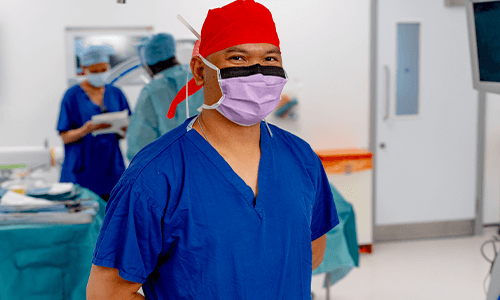Oaks Hospital Specialists
-
Professor Thanjakumar Arulampalam
Prof Tan Arulampalam is a Consultant General Surgeon in Essex, specialising in hernia surgery, gall bladder surgery, colo-proctology, and gastrointestinal endoscopy.
Read more -

Miss Sharmila Gupta
Miss Sharmila Gupta is a Consultant General Surgeon at Oaks Hospital specialising in hernia, gall bladder surgery, coloproctology and GI endoscopy.
Read more -
-
Mr Abhilash Paily
Mr Abhilash Paily is a Consultant General and Colorectal Treatment surgeon in Colchester, Essex
Read more -
Mr Matthew Tutton
Matthew Tutton has more than 15 years experience as a Consultant General and Colorectal Surgeon. He is a specialist in robotic bowel surgery, laparoscopic (keyhole) surgery and endoscopy. He is the Divisional Director for Surgery at Colchester and Ipswich Hospitals.
Read more -

Mr Subash Vasudevan
Mr Vasudevan is a Consultant General & Colorectal Surgeon at Essex, Oaks Hospital
Read more -

Mr Greg Wynn
Mr Greg Wynn is a Consultant General Surgeon in Essex, he specialises in gallstones, hernias, endoscopy, colorectal cancer, inflammatory bowel disease, diverticular disease, IBS, haemorrhoids and fistulas.
Read more


